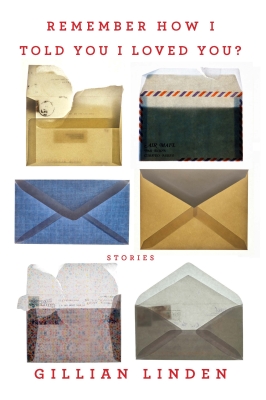In the post-Sex and the City, mid-Girls era, it’s tough for anyone to write about being a young woman in New York without sounding derivative. But Gillian Linden’s debut collection of stories Remember How I Told You I Loved You? has a unique tone that is clearly derivative of nothing (except Linden’s talent). Each of the seven stories feels familiar—girl and boy break up, girl hates job, girl loves dog, etc.—but is also startlingly original in its array of details and unassuming sense of humor. We asked Linden about her education, whether she meditates, and how this slim but powerful book came to be. —Elena Schilder
You got your MFA from Columbia. What was that like, and did you have a mentor—or several mentors—there?
I liked the structure of school—the schedule, the deadlines—and I had many wonderful teachers. I also really enjoyed being in an environment where emphasis was placed on editing, on rewriting.
How did you get involved with Little A and how did your book deal come about?
Ed Park, who’d been my teacher at Columbia, introduced me to my editor, Carmen Johnson. She worked with me as I was going through the stories and putting together the collection.
Your book is a collection of stories. I’ve heard that the short story is becoming popular again. What do you like about working with this form?
I haven’t thought too much about working in the form specifically. It doesn’t feel like a choice. I like having boundaries of some kind when I’m writing, and keeping in mind a lower word count might satisfy that.
Your writing has a great, subtle sense of humor. When you write, do you aim for humor? Or does it happen more naturally?
I do aim for humor, more or less, although at first my aims are pretty fuzzy. In editing I try to make things smoother and more accurate. Some degree of humor seems natural to the characters in the stories and the situations they’re in.
There are a lot of recognizable situations in these stories—first dates, break-ups, college dorm rooms, wrong jobs, dog ownership. How important is realism to you in fiction—your fiction and/or other peoples’?
When I’m reading it doesn’t matter whether things match up with my idea of real life. When I’m writing I tend to stick to experiences closer to my own, but this also doesn’t really feel like a choice, and maybe someday it will change.
I like the character in the story “Sam” who practices meditation and is always “on a sit.” You seem to make fun of him and appreciate him at the same time. Do you meditate?
I’m glad you think the story shows some appreciation for that character. I don’t meditate, but maybe I should—it seems like a good thing to do. For me that part of the story is about Lewis’s absorption with his practice, and his belief in it, and the mixed feelings—jealousy, admiration, skepticism—Leila has about that.
Besides writing fiction, if you don’t mind telling us, what do you do for money? I’m always curious to find out how writers make a living.
I’m also interested in how people make a living. I’m a substitute teacher at a couple of high schools and I’m a tutor.
Are most of these stories set in New York?
Most of them are. It’s the place I know best. Even in the stories where the action, if you could call it that, takes place somewhere else, New York is a reference point. It’s the home base of the collection.![]()

